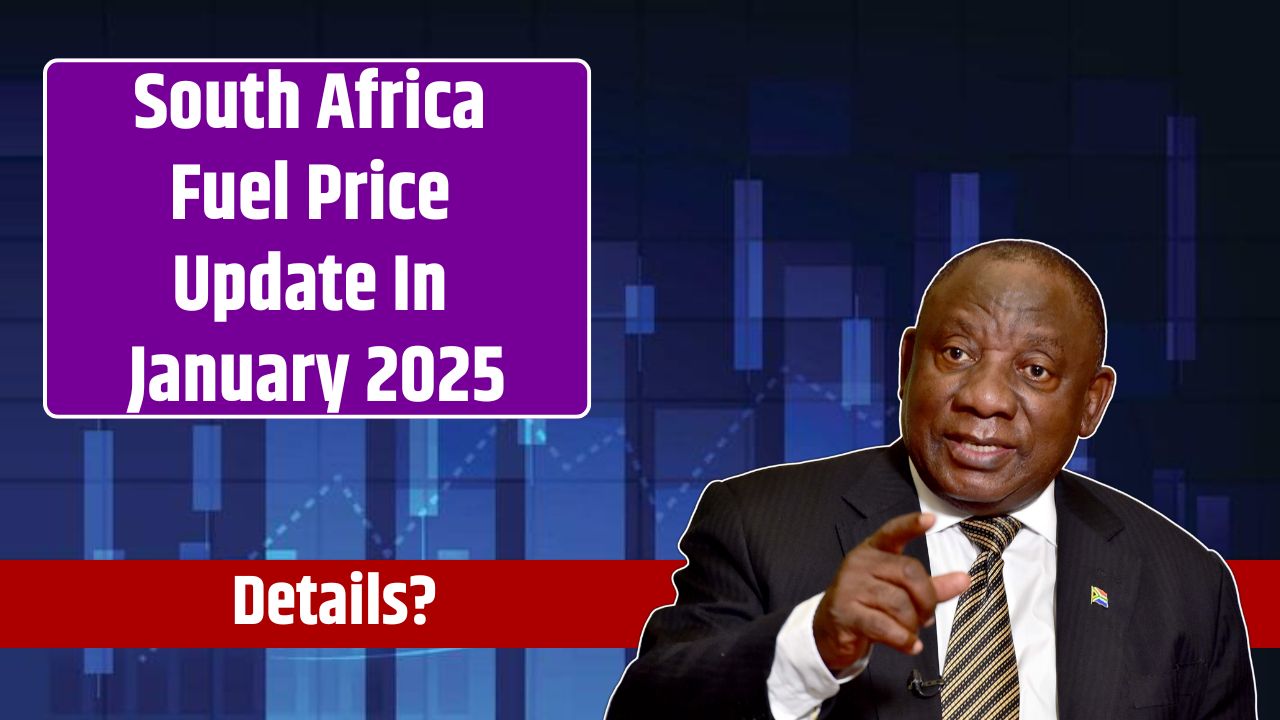As January 2025 approaches, South Africans are bracing for new fuel price adjustments.
Fuel price changes directly affect household budgets, business operations, and transportation costs, making them a focal point for consumers and industries alike.
Managed by the Department of Energy (DoE), these monthly updates reflect shifts in global oil prices, exchange rates, and domestic factors.
With the DoE expected to announce the new prices in early January, understanding how these adjustments are calculated and their potential impact is crucial.
South Africa’s Fuel Pricing Mechanism
South Africa’s fuel pricing model ensures uniform pricing nationwide by incorporating both global and local factors. Adjustments are made monthly based on:
- Crude Oil Prices: International oil prices serve as the baseline for fuel costs.
- Exchange Rate Fluctuations: The rand’s performance against the US dollar significantly impacts the cost of importing crude oil.
- Logistics and Distribution Costs: Expenses incurred in transporting fuel from refineries to distribution points.
- Taxes and Levies: Includes the Fuel Levy and Road Accident Fund Levy, which are reviewed annually.
This system ensures transparency, with all variables contributing to the final price consumers pay.
Key Factors Influencing January 2025 Prices
Several dynamic elements are shaping the anticipated price adjustments for January 2025:
1. Crude Oil Prices
Global crude oil prices remain volatile due to geopolitical tensions, OPEC production cuts, and increased demand. South Africa’s reliance on imported oil makes it particularly susceptible to these fluctuations.
2. Exchange Rate Volatility
The rand’s performance against the US dollar is critical. A weaker rand increases the cost of oil imports, while a stable or stronger rand can cushion the impact of rising crude oil prices.
3. Seasonal Demand
During global winter months, heating oil demand spikes, indirectly influencing international crude oil prices. While South Africa’s summer season sees less domestic demand variation, global factors still play a role.
4. Local Infrastructure
Occasional domestic issues, such as pipeline disruptions or refinery inefficiencies, can add to costs. These factors, while less frequent, underscore the importance of a well-maintained fuel distribution network.
Predicted January 2025 Fuel Price Adjustments
Based on recent market trends and currency movements, the following price changes are anticipated:
| Fuel Type | December 2024 Price | Expected Increase | January 2025 Price |
|---|---|---|---|
| Petrol 95 Octane | R21.50/L | +R0.50 | R22.00/L |
| Petrol 93 Octane | R21.30/L | +R0.40 | R21.70/L |
| Diesel (0.05% Sulfur) | R20.00/L | +R0.60 | R20.60/L |
| Diesel (0.005% Sulfur) | R20.20/L | +R0.50 | R20.70/L |
| Illuminating Paraffin | R15.50/L | +R0.30 | R15.80/L |
Note: These estimates are subject to confirmation by the Department of Energy.
How to Prepare for Fuel Price Changes
1. Adopt Fuel-Efficient Driving Habits
- Avoid rapid acceleration and braking.
- Maintain consistent speeds.
- Keep tires properly inflated and vehicles regularly serviced.
2. Explore Alternative Transport
- Use public transportation or carpooling to save on fuel costs.
- For shorter distances, consider walking or cycling.
3. Budget for Fuel Costs
- Anticipate fuel price changes in your monthly budget.
- Monitor trends to refuel strategically before price hikes.
4. Stay Updated
Keep track of announcements from the Department of Energy to plan your refueling schedule wisely.
Fuel price adjustments in January 2025 will reflect the interplay of global and local economic conditions.
By understanding these factors and preparing accordingly, South Africans can better navigate the impact of changing fuel costs.
Small lifestyle adjustments and proactive planning can go a long way in managing the financial strain of fuel price increases.
















